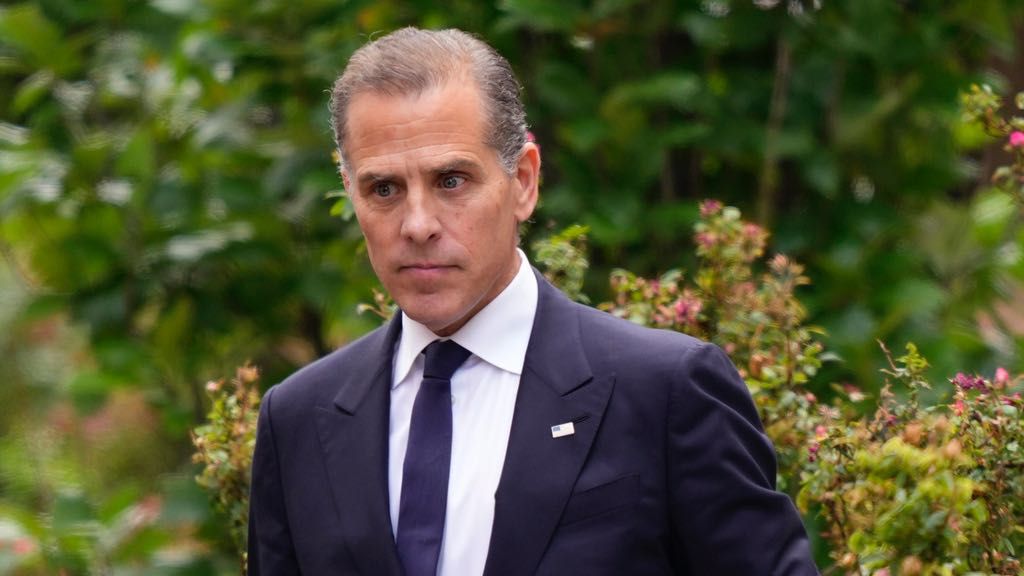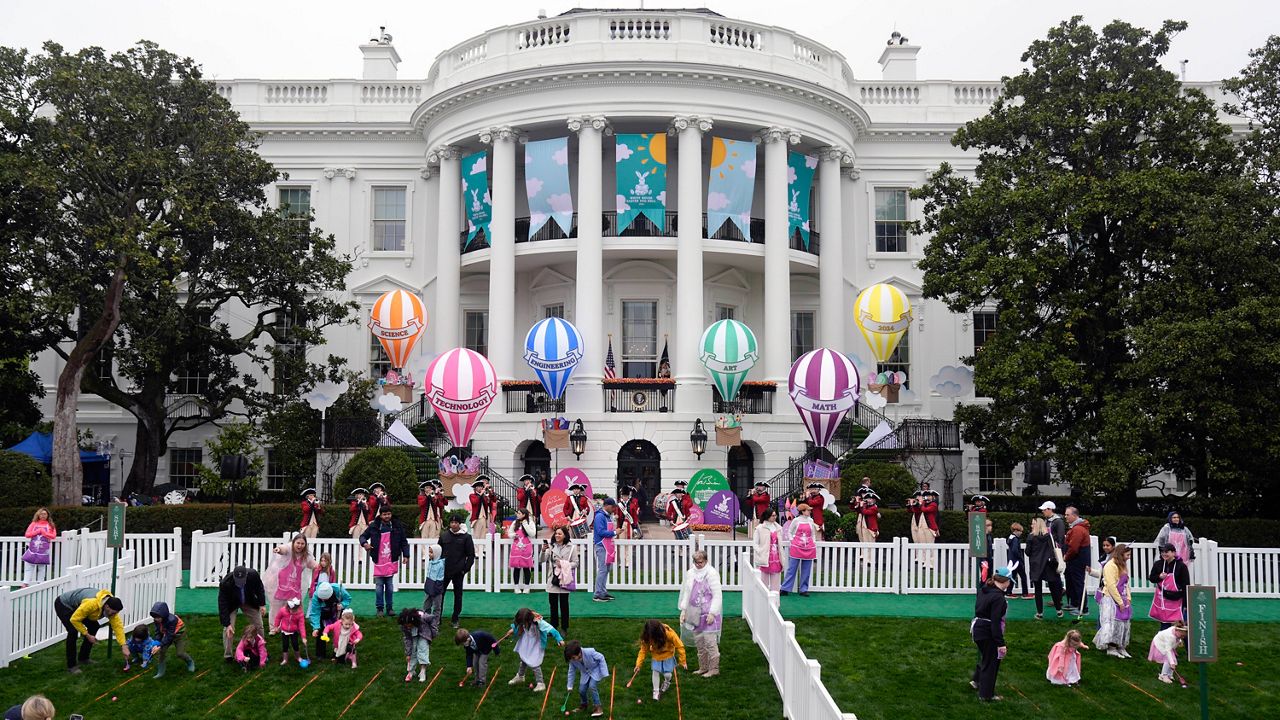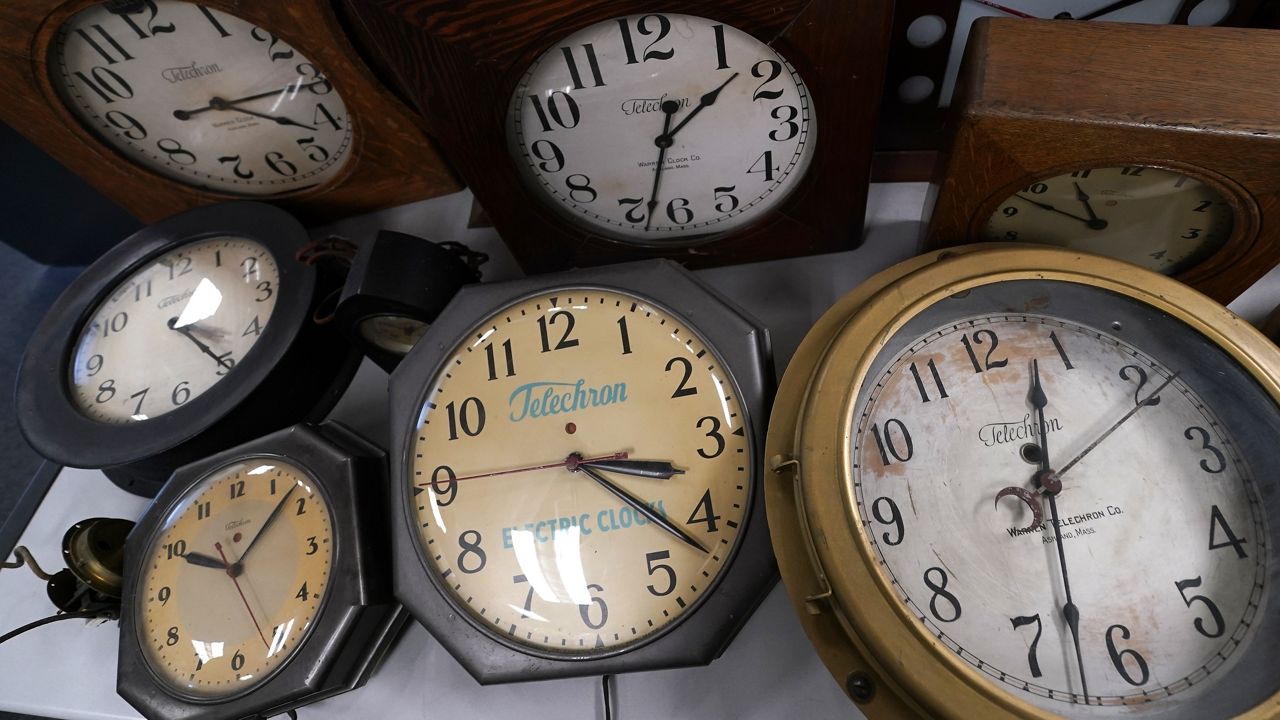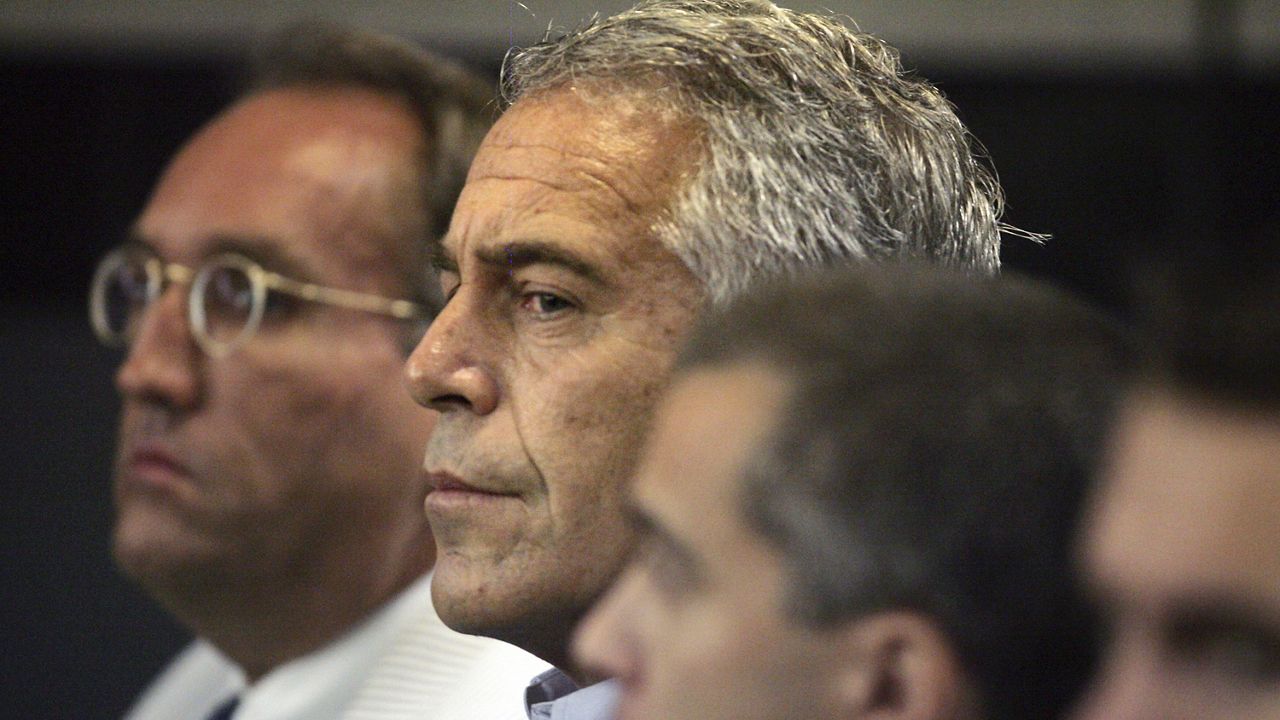Hunter Biden's continued legal problems may no longer be a political concern for the president, but they're still very much a personal concern.
President Joe Biden's son is already facing the prospect of prison time after his conviction on felony gun charges and is now confronting a second criminal trial in the case accusing him of dodging taxes on millions of dollars in income from foreign business entities.
The trial could put a spotlight on Hunter Biden's foreign business dealings that Republicans have spent years scrutinizing to accuse the Democratic president — without evidence — of corruption in connection with his son's work overseas.
The potential political ramifications of the trial just weeks before the presidential election may have faded somewhat since President Biden's July decision to drop out of the 2024 race. But the president is deeply concerned with the well-being of his son, so the trial is likely to weigh heavily on him in the final months of his five-decade political career.
It's unclear whether the Biden family will attend the trial, which begins Thursday with jury selection in a Los Angeles federal court. First lady Jill Biden sat in the courtroom nearly every day of Hunter Biden's trial in Delaware, flying home from France to be there only to turn around and return for an elaborate state visit at Élysée Palace.
The Bidens watched some of Hunter's darkest moments relived in public during that trial, which ended with his conviction on three felony gun charges in June. The tax case could air more salacious evidence about what prosecutors say was lavish spending on things like escorts, drugs and exotic cars in the years Hunter Biden is accused of failing to pay at least $1.4 million in taxes.
President Biden, for his part, has said he will not pardon his son nor commute any sentence. But the 81-year-old made those pledges while he was still actively campaigning. It's not clear whether his mindset has changed now that he has only a few more months in the White House.
The gun case
Neither trial was supposed to happen in the first place.
Hunter Biden had agreed last year to plead guilty to misdemeanor tax charges in a deal with special counsel David Weiss, the Delaware U.S. attorney who began investigating him during President Donald Trump's administration.
Under the deal, Hunter Biden could have avoided prosecution in the gun case if he stayed out of trouble for two years. But the deal blew up after the Delaware judge raised concerns about unusual aspects of it, and Weiss subsequently indicted him on the gun charges in Delaware and tax charges in California.
The gun case resurfaced tawdry and embarrassing details surrounding Hunter Biden's spiral into a crack cocaine addiction before becoming sober in 2019. Jurors saw personal text messages and photos of Hunter Biden with drug paraphernalia or partially clothed as prosecutors worked to convince them that he lied when he swore on a federal form to buy a gun in 2018 that he wasn't a drug user.
It took just about three hours of deliberations for jurors to find him guilty on all three counts. The first lady clutched Hunter Biden's hand as they strode from the courthouse, got into the waiting SUVs and drove off.
Weiss' team has not yet said whether it will seek prison time when Hunter is sentenced in that case on Nov. 13 — the week after the election. The charges call for up to 25 years in prison, though as a first-time offender he would likely receive far less or potentially no prison time at all.
Family support
President Biden stayed away from the courthouse during the Delaware trial and said little about the case while it was ongoing to avoid the appearance that he was interfering in a criminal matter brought by his own Justice Department.
Shortly after Hunter's conviction, the president and first lady issued a statement expressing love for their son and pride in his addiction recovery. Hours later, the president landed in Wilmington to spend the night at his Delaware home and embraced Hunter, who was waiting for him on the tarmac.
Hunter has remained by his father's side in the months since the gun trial. He and other relatives watched from the Oval Office as the president gave his address to the nation explaining why he decided to quit the presidential race. And he joined his father on stage last month at the Democratic National Convention after the president's speech endorsing Vice President Kamala Harris.
More legal peril
The tax indictment brought last year details what prosecutors allege was a four-year scheme to avoid paying taxes while spending wildly on things like drugs, strippers and luxury hotels. The back taxes have since been paid.
Hunter Biden's lawyers have indicated they will make the case that he did not act "willfully," or with the intention to break the law, arguing that alcohol and drug abuse impaired his decision-making and judgment.
Prosecutors have pressed the judge to allow them to tell jurors about Hunter's spending habits, including payments to people to clean up drug paraphernalia for him, so they can evaluate whether he intentionally or mistakenly listed those items as business expenses.
"He's not on trial because he hired people to clean out drug paraphernalia," prosecutor Leo Wise said during a recent court hearing. "But then he went on and claimed it was a business expense."
It's unclear how many of the lurid details jurors will hear. U.S. District Judge Mark Scarsi said he will maintain "strict control" over the presentation of potentially salacious evidence after the defense pressed the judge to keep it out of the case.
"They want the character assassination," Mark Geragos, a celebrity lawyer leading Hunter's defense in the California case, said during the hearing last month. "They want to slime him because that is the whole purpose."
Prosecutors have also said they want to bring in evidence about Hunter Biden's foreign business dealings to prove his state of mind during the years at issue in the case.
That includes testimony about a Romanian businessman who prosecutors say hired Hunter Biden and a business associate to influence the U.S. government while his father was vice president. The Romanian was under criminal investigation in his home country at the time and had hoped the U.S. government could help end his legal woes, according to prosecutors.
Defense lawyers have accused prosecutors of trying to insert "politically-charged" and irrelevant details about his foreign business affairs into the trial. The judge deferred a ruling on the matter until trial but warned lawyers last month to keep focused on the tax allegations.
"We're not going to talk about any improper government conduct of any administration," the judge said.











